
Colonial privilege, academic freedom and chicken feet: reflections of a British veteran HKU professor
Douglas Kerr is bidding farewell to the city he has called home for 38 years. He gives his take on where Hong Kong and its university system are headed
Veteran English professor Douglas Kerr never really felt comfortable working in a colony, so when British rule ended in Hong Kong he felt a sense of relief.
“It was a bit of an embarrassment for people like me to be looked at as beneficiaries of an unfair colonial system,” he told City Weekend last month, on the day he left for London after 38 years in Hong Kong.
“So for me personally, it was very nice to no longer work in a colony, or to teach a colonial language.”
For Kerr, who was head of the English department at the University of Hong Kong in 1997, there were “accrued advantages” of the handover other than just a clearer conscience. He was able to tap into “far more talent from the mainland than ever before”.
Kerr arrived in Hong Kong in 1979 at 27, fresh from the University of Warwick where he received a doctorate. The timing allowed him to experience the city for 18 years before, and 20 years after, the handover, which he saw as no more than “a symbolic act”.
“For those of us who worked in Hong Kong during the handover, there was nothing really that dramatic about 1997. The changes associated with the resumption of sovereignty began in the 1980s, they continued through 1997, and are still continuing,” he said.
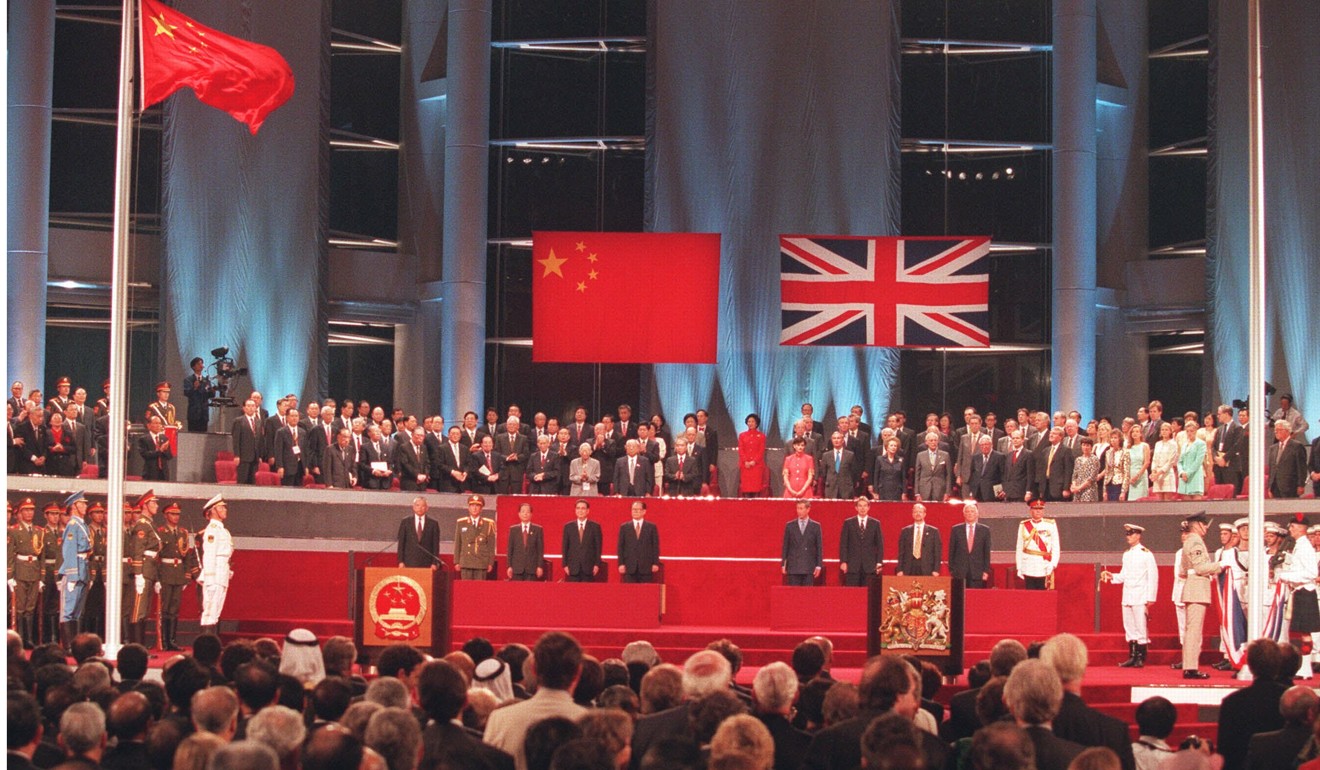
Initial anxiety about interference from the central government, including rumours about the English language being dumped in favour of Chinese, were “proved to be groundless,” he said.
In more recent years, however, he saw “definite signs” that Beijing had taken “a more proactive role towards Hong Kong. And that’s something we need to keep an eye on.”
As for HKU – which will be without a president next January after the incumbent, Professor Peter Mathieson, leaves for the University of Edinburgh – Kerr, a former dean of arts, said it was crucial for the university to find a good replacement.
Outgoing HKU vice-chancellor Peter Mathieson won’t wait for successor to be hired
“It will be vital to attract the right person. But who wouldn’t want to be president of a university where Arthur Li is chairman of the council?” he said, in reference to Arthur Li Kwok-cheung, the controversial chairman of the university’s governing council.
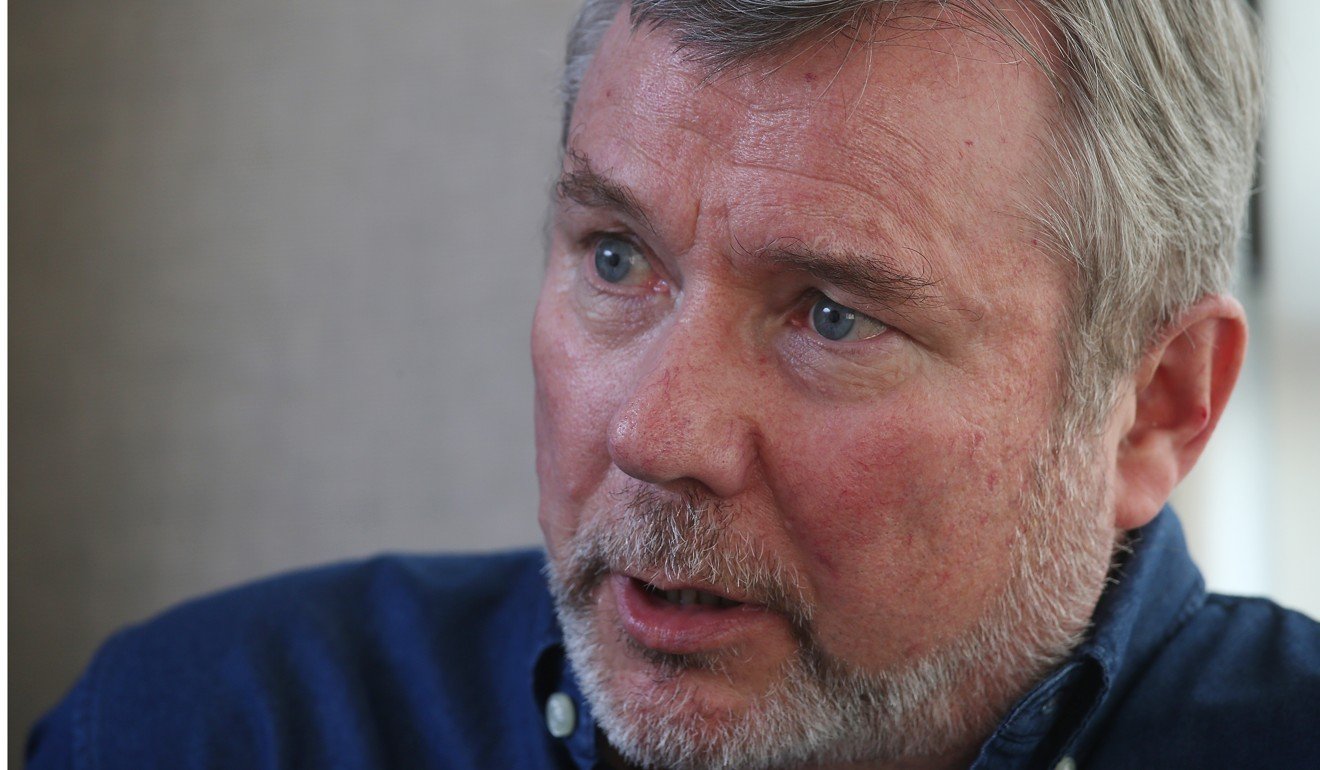
What was it like when you started at HKU?
When I arrived in August 1979, my flat had no air conditioner and no working fan. The first night I lay on my bed wondering if I would melt. But things soon got better. I was delighted to have my own office with my name on the door, and my own telephone. After several glum years as an impoverished graduate student, I couldn’t believe my luck. Hong Kong and HKU have been good to me and I’m very grateful.
What Chinese, Singaporean universities can teach us about academic freedom
How different was HKU in those days?
It was smaller, more intimate, less professional. And of course it was a colonial university. I think that in general – though this was before the days of “outcome-based learning” and similar improvements – we taught better. We certainly gave the students more of our time, and knew them better. On the other hand, research in the humanities was weak, and there was none of what we would now call research infrastructure, guidance or help for young scholars. Nowadays we don’t recruit new staff unless they already have a clear research programme, we mentor them assiduously and we don’t promote or tenure them unless their research and publication achievements are good. Everyone applies for competitive grants, and getting a grant, the bigger the better, is a “performance indicator”. This still seems to me an upside-down way of looking at things, rewarding research for being expensive.
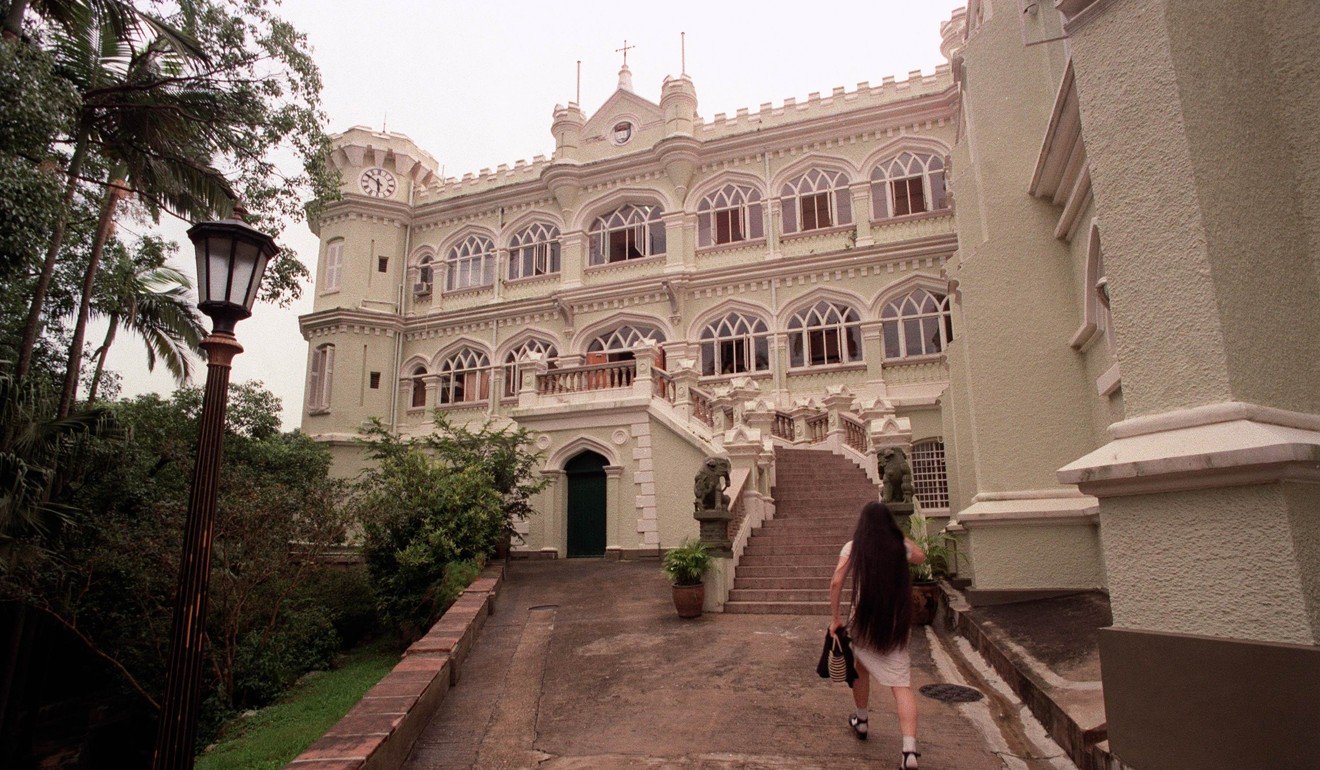
Are the students today different from those in the past?
When I started at HKU, nearly all our students came from about 20 “famous” local schools. Nowadays they come from schools all over Hong Kong, which is obviously much better. There are more international and visiting students, and more students from the mainland, especially in graduate programmes. In the old days you almost never heard Putonghua on the campus. Ever since I arrived more than 30 years ago, people have been telling me that the standard of English among young people is in decline. I see no sign of this among the students I teach, though of course they aren’t a typical sample. It’s true that the internet generation isn’t used to reading books, and this is a pity, but that’s a global phenomenon. Today’s HKU students have far better facilities than when I first arrived, from sports venues to library holdings to overseas study opportunities. The fabulous Learning Commons at HKU, which came from the idea of Professor John Malpas, is as good as anything you’ll find in any university around the world.
Last Hong Kong governor Chris Patten says academic freedom under threat from government taking its cue from Beijing
How good is HKU?
It can’t compete with the great universities of the world because of its size. The small campus puts a limit on possibilities for development. The university doesn’t have a big endowment, like the Ivy League schools in America, and the Hong Kong government lags behind the mainland and Singapore, and many other places, in its level of investment in higher education and research. This could be remedied. In the meantime, HKU is one of the top universities for its size, and one of the best in Asia, and has a good global reputation. Mainland universities are making great strides, especially in physical facilities, but in many ways they had to start from scratch after the Cultural Revolution. The universities in Hong Kong are likely to continue to be a significant asset to China, if properly understood and supported. HKU is thoroughly international, and operates in the English language in conditions of academic freedom.
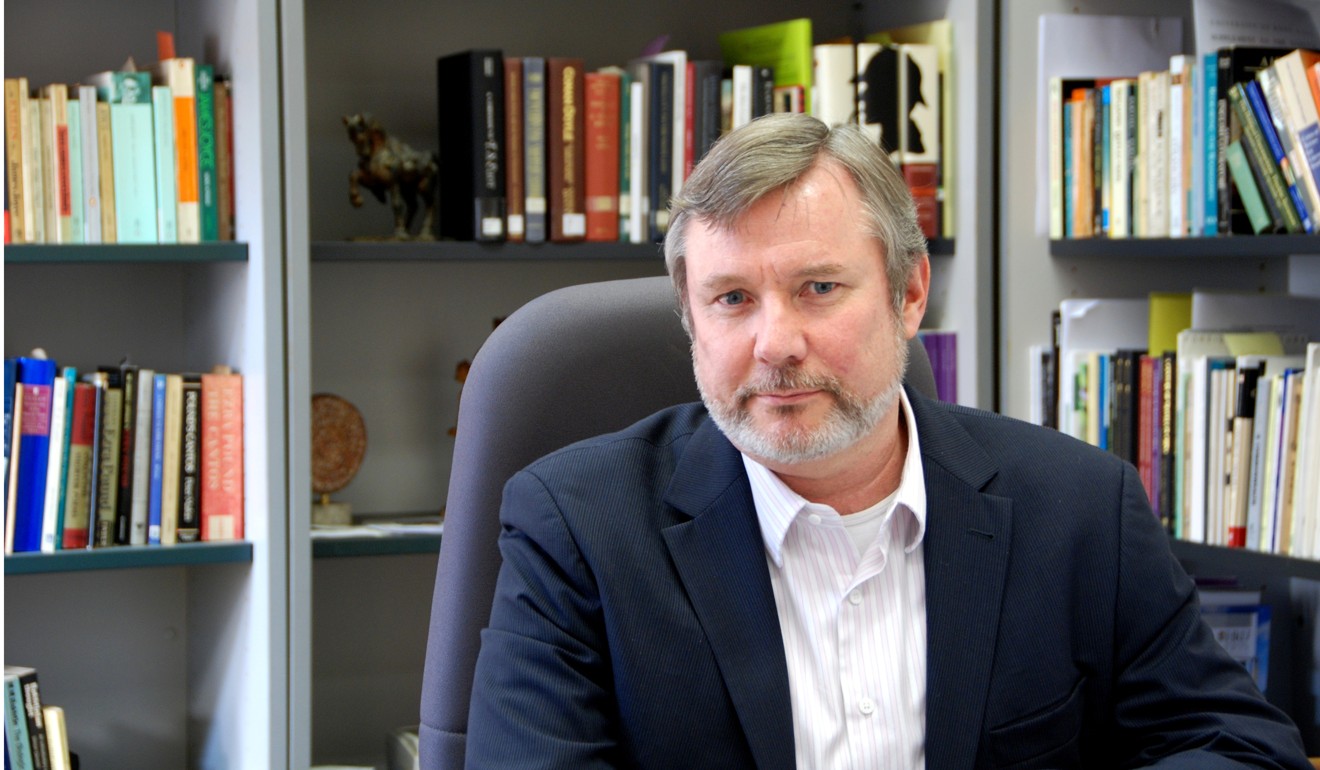
What are your views on academic freedom?
There are reasons to be concerned about this. The Chinese central government is so burdened with its own contradictions (as the Marxists say) that it feels the need to control knowledge and suppress criticism. Just look at the way it isn’t able to tell the truth about its own past. There have been plenty of ugly examples of this hostility to intellectual freedom – the Causeway Bay booksellers, the fate of Liu Xiaobo, the recent attempt to black out some Cambridge University Press publications on the mainland. Universities are places where free intellectual inquiry, and freedom of expression within the law, are not just tolerated but essential. Knowledge isn’t guaranteed by the say-so of authority, a political party or a church. A humanistic theory, or a scientific discovery, has to be always available for testing by debate and experiment: this is the only way we know what it’s worth.
The Chinese central government is so burdened with its own contradictions (as the Marxists say) that it feels the need to control knowledge and suppress criticism
What were the high and low points of your career?
I’m quite lucky in that I enjoyed teaching, research and administration. For a scholar, publishing a new book is probably the most satisfying moment. Towards the end of my career I had a spell as dean of the arts faculty, and that brought different kinds of satisfaction, especially when recruiting promising new staff. Deans have to take responsibility when things go wrong but can also claim some of the credit for the work of their colleagues. I am far from being a born leader, but that experience made me interested in leadership and how it works. As for low points, the controversy over the appointment of Professor Johannes Chan Man-mun as vice-president in 2015 was demoralising. I thought the council’s decision to veto the appointment was intellectually disreputable, to judge by the discussion leaked from the secret council meeting. This has left a bad taste.
University of Hong Kong's decision not to appoint Johannes Chan as pro-vice-chancellor smacks of political interference
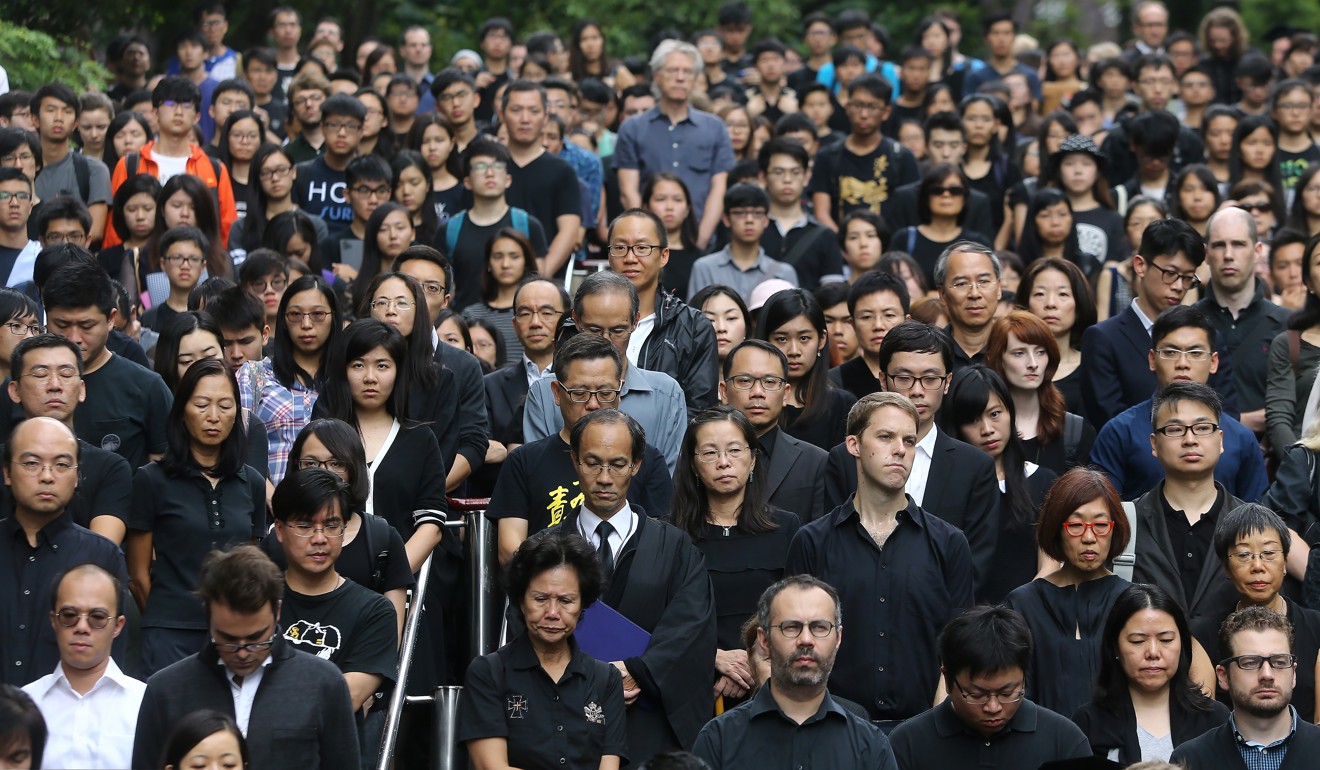
Do you have anything to say on the three jailed student leaders and the call for Benny Tai Yiu-ting to resign?
The sentencing of the student leaders is a tricky situation and I don’t have much to say about it. You see, people who question the legal process and impugn the independence of the judges are in a way endangering the very thing they want to preserve, which is the rule of law. I think Peter Mathieson was right to say that, whatever opinions you may have about the students’ actions and beliefs, they took action and there were consequences. That’s in line with the official response of the university during the Occupy movement. We said it was not for us to tell students what to think or what to do, and that entails them taking responsibility for their actions. I think that’s fair enough. As for the call to fire Benny Tai, it’s the university’s business to decide who it’s going to employ and who not. Benny is a member of staff, recruited and promoted in the usual way. His service to the university should be assessed by his academic peers and seniors – and there is an established process for this – not by some outside ignoramus.
What will you miss most, and the least, about Hong Kong after you leave?
Miss most would be char siu bao [steamed roast-pork buns]. Miss least would be chicken feet.
What is the first thing you want to do after relocating to London?
I’d like to go for a walk along the River Thames. But in actuality, I’ll probably connect to broadband and deal with my emails first.
After almost four decades in Hong Kong, what will be the biggest culture shock for you in London?
All the services in Hong Kong are brilliantly fast, from restaurants to banks. I’d have to adjust to a slower rhythm. This takes patience at first.
To what extent would you say you are going “home”?
I’ve lived more than half my life in Hong Kong, so in that sense I’m leaving home. I was brought up in Scotland, that’s my homeland, but that’s not where I’m going to live. “Home” for me is complicated, but not problematic.
What will you do for leisure in London?
Dozens of wonderful theatres, museums and libraries in easy reach. This is the main attraction of London, and of retirement. I also have an ambition to live a rather more healthy life.

